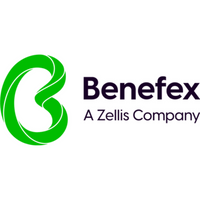The role of peer-to-peer recognition in social wellbeing

Social wellbeing can appear more to be more complex than its other wellbeing counterparts, but can easily be defined as the extent to which you feel a sense of belonging, social inclusion and social stability – it encompasses our lifestyles, values and beliefs.
When it comes to the workplace, we can apply social wellbeing to:
- Relationships with colleagues, managers and wider social security
- Company values and corporate social responsibility
- Social inclusion and a sense of belonging
- Feeling valued as a person, colleague and employee.
Belonging at work matters
One element of social wellbeing is our sense of belonging. This has been well researched over the last decade and is evidently an important intrinsic motivator. Research shows that people who feel a sense of belonging report higher levels of overall life satisfaction and better mental wellbeing. Feeling like we belong somewhere is a major need that motivates us in our lives. When employees recognise the efforts of each other and receive recognition themselves, their sense of purpose and commitment to work improves.
A culture of recognition is one way to help employees feel that sense of belonging, by encouraging them to form strong social connections at work, making them happier and healthier, which has a positive impact on their experience at work. Those who do have a friend at work are seven times more likely to feel engaged. As our workforces are increasingly remote, it has never been more important to make employees feel like they belong, and are recognised by (and thus more connected to) their colleagues and the wider business.
Social wellbeing + physical wellbeing
Not only does being connected to other people reduce the frequency of physical ill-health, in some cases, the more positive work relationships an organisation has, the fewer sickness issues they report. The research also reveals that when employees are appreciated and connected at work, they report happier home lives, too. By empowering our employees to recognise each other, we are allowing them to build these much-needed social connections and take control of their work. When this happens, workplaces show overall higher wellbeing scores. This improvement in wellbeing can have a significant impact on the organisation as a whole.
Organisations like Thames Water have seen a reduction in illness absence by a massive 76% as a result of its commitment to wellbeing. Similar results published by PwC say the financial benefits of wellness programmes at work include an 18% reduction in staff turnover and a 14% increase in employee satisfaction. Apart from the obvious ROI from fostering a healthier workforce, delivering employee recognition schemes has also been shown to produce higher revenue. Those organisations investing just 1% of payroll are 79% more likely see better financial results.
We know from the sheer volume of published research that recognition from another employee is valued higher than other forms of feedback or reward. Peer-to-peer recognition not only empowers employees, but it enables them to build better bonds with colleagues and form positive and productive relationships between departments. When this happens, we actually see employees’ wellbeing improve, showing that a recognition tool can in fact be considered a wellbeing tool, too.
Recognition can no longer be overlooked
A lack of positive, social interaction is harming employee mental health. A study of 20,000 American employees found that only half have meaningful personal interactions with people on a daily basis. Research has found a lack of recognition at work is a predictor of higher levels of loneliness, and we know that being acknowledged is one of our very basic human needs. With a lack of recognition, we are experiencing fewer of those moments that connect us to other people.
Recognising the efforts of colleagues brings you closer to them. When we are thanked by our colleagues, it has the same impact in our brain as being given money. The ventral striatum and the ventral medial prefrontal cortex are reward centres in the brain which are activated when we get thanked or receive compliments. But it’s not just recognition that improves our wellbeing. Research from Mendoza and Schultz has shown that the reward centre in the brain lights up when just observing someone being thanked. Seeing someone else receive recognition has a positive effect on all who witness it.
Now more than ever, we need ways to encourage employers to support the development of social capital at work. As we are settling into a new hybrid way of working, it’s crucial to acknowledge the pivotal role recognition plays in employee wellbeing and the employee experience.
If the pandemic taught us anything, it was just how much we need small, regular, and positive interactions with other people. It’s time for employers to bring back more of these moments of positive exchange, and start to encourage employees to recognise and thank each other more often. Not just for our people’s success, but our organisations’ too.
This article is provided by Benefex.
In partnership with Benefex
The home of award-winning employee benefits, reward, recognition, & communications.







